Recent Blog Posts
The Writ of Habeas Corpus
 The law attempts to provide a variety of protections to people who have been accused of a crime. Before and during a trial, the Constitution conveys numerous rights that are designed to prevent abuses on the part of the criminal justice system. After the trial, a losing defendant is allowed to appeal their case to a higher court if they think the trial court made a mistake. Yet sometimes even with all these protections, courts still make mistakes. When that happens, people may be eligible for a writ of habeas corpus, also known as a habeas petition or simply the Great Writ.
The law attempts to provide a variety of protections to people who have been accused of a crime. Before and during a trial, the Constitution conveys numerous rights that are designed to prevent abuses on the part of the criminal justice system. After the trial, a losing defendant is allowed to appeal their case to a higher court if they think the trial court made a mistake. Yet sometimes even with all these protections, courts still make mistakes. When that happens, people may be eligible for a writ of habeas corpus, also known as a habeas petition or simply the Great Writ.
Understanding the Writ
Habeas corpus is an old writ that has been around since the drafting of the Constitution, but is now codified in 28 U.S.C § 2254. The idea behind the writ is that it provides a check on the government, preventing someone from being held without good cause. Essentially, it lets people being held by the government go to court to argue that they are being held illegally.
U.S. Settles Fake Facebook Profile Case
 The U.S. Drug Enforcement Agency recently settled a lawsuit pending against it, Arquiett v. U.S., paying $134,000 to a woman whose photographs the DEA had used to create a fake Facebook profile to carry out drug stings. The DEA acquired the photographs off the woman's cell phone after she was arrested on drug charges. The settlement did not require the government to admit to any wrongdoing, and it prevents the case from going to trial. However, it may still provide an important guidepost for how much respect the federal government should have for people's privacy when it is enforcing the laws, since the Justice Department has now said that it is “mak[ing] clear the necessity of protecting the privacy and safety of third parties in every aspect of our criminal investigations.”
The U.S. Drug Enforcement Agency recently settled a lawsuit pending against it, Arquiett v. U.S., paying $134,000 to a woman whose photographs the DEA had used to create a fake Facebook profile to carry out drug stings. The DEA acquired the photographs off the woman's cell phone after she was arrested on drug charges. The settlement did not require the government to admit to any wrongdoing, and it prevents the case from going to trial. However, it may still provide an important guidepost for how much respect the federal government should have for people's privacy when it is enforcing the laws, since the Justice Department has now said that it is “mak[ing] clear the necessity of protecting the privacy and safety of third parties in every aspect of our criminal investigations.”
Wisconsin Judge Strikes Down Campaign Finance Law
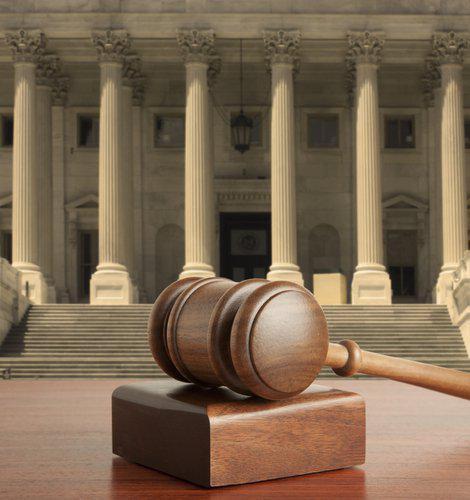 The law of campaign finance has been in a state of flux over the past few years. The U.S. Supreme Court issued landmark rulings in cases like Citizens United v. FEC and McCutcheon v. FEC. Wisconsin in particular has seen a variety of campaign finance-related rulings stemming from a probe into Governor Walker's recall election. Now another case may have important implications for political action committees and other organizations who fall under the regulations of campaign finance law. The decision in Wisconsin Right to Life v. Barland removes numerous restrictions on campaign spending and other procedural requirements for certain corporations.
The law of campaign finance has been in a state of flux over the past few years. The U.S. Supreme Court issued landmark rulings in cases like Citizens United v. FEC and McCutcheon v. FEC. Wisconsin in particular has seen a variety of campaign finance-related rulings stemming from a probe into Governor Walker's recall election. Now another case may have important implications for political action committees and other organizations who fall under the regulations of campaign finance law. The decision in Wisconsin Right to Life v. Barland removes numerous restrictions on campaign spending and other procedural requirements for certain corporations.
The Law in Question
The suit in question was brought by a pair of related organizations, Wisconsin Right to Life Inc (The Corporation), and The Wisconsin Right to Life PAC (The PAC). The lawsuit challenged a plethora of different campaign finance restrictions in Wisconsin as unconstitutional. Three of the most important rules that were challenged were:
Wisconsin Felony Murder Law
 Homicide laws are almost all focused on the intent of the person committing the crime. An intentional killing is treated as more serious than a killing that was merely done recklessly. Yet, there is one area of homicide law where intent is almost totally irrelevant: felony murder. Felony murder is a special type of homicide under Wisconsin law that people may be charged with if they cause someone's death during the commission of a felony, regardless of intent. Defendants convicted of felony murder in Wisconsin can face an extra 15 years in prison on top of their sentence for the original crime.
Homicide laws are almost all focused on the intent of the person committing the crime. An intentional killing is treated as more serious than a killing that was merely done recklessly. Yet, there is one area of homicide law where intent is almost totally irrelevant: felony murder. Felony murder is a special type of homicide under Wisconsin law that people may be charged with if they cause someone's death during the commission of a felony, regardless of intent. Defendants convicted of felony murder in Wisconsin can face an extra 15 years in prison on top of their sentence for the original crime.
What Felony Murder Is
Felony murder is an extra crime that exists in order to add severity to instances where a defendant's crime caused the death of another person. However, not all crimes will trigger the felony murder rule. Instead, it must be one of the crimes listed in the Wisconsin felony murder statute. These felonies are:
Understanding What to Do When Federal Investigators Knock
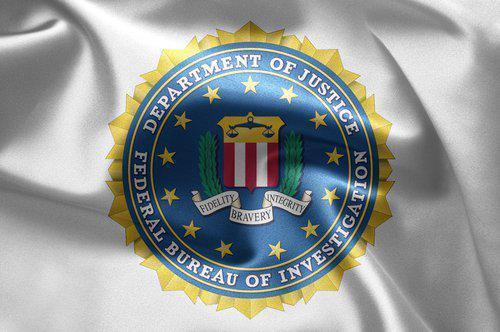 One of the most stressful things that can happen to any business owner is to have a set of federal investigators knock on the door to conduct an investigation into the company. This can come in a couple of forms. Sometimes, it will be a literal knock, investigators showing up without warning to conduct an interview. Other times, the notice of an investigation will come in the form of a subpoena asking for documents from the company, or even just a letter informing the business owner that they or their company is being targeted by investigators.
One of the most stressful things that can happen to any business owner is to have a set of federal investigators knock on the door to conduct an investigation into the company. This can come in a couple of forms. Sometimes, it will be a literal knock, investigators showing up without warning to conduct an interview. Other times, the notice of an investigation will come in the form of a subpoena asking for documents from the company, or even just a letter informing the business owner that they or their company is being targeted by investigators.
First Steps
As the owner of the company being targeted by federal investigators, the most important thing to do is to stay calm and stay polite. Panic will not help the situation, and investigators may even take nerves as a sign that they are on the right track. Rudeness can also be problematic since that makes it more difficult to work with the investigation going forward if that turns out to be the best strategy.
Man Foils Robbery with Taser Gun and Is Charged with Felony
 People who purchase a gun tend to be aware that there are a variety of laws and other rules surrounding them, such as where the weapon is allowed to be used and how the gun may be carried. Yet, not as many people realized that a similar set of rules apply to other weapons, such as electronic defense weapons like taser guns. A Wisconsin man found that out the hard way when he stopped a robbery at a local bar, only to have prosecutors charge him with a felony.
People who purchase a gun tend to be aware that there are a variety of laws and other rules surrounding them, such as where the weapon is allowed to be used and how the gun may be carried. Yet, not as many people realized that a similar set of rules apply to other weapons, such as electronic defense weapons like taser guns. A Wisconsin man found that out the hard way when he stopped a robbery at a local bar, only to have prosecutors charge him with a felony.
What Happened
The man in question was at a local neighborhood bar early on a Monday morning. As the bartender was pulling drinks out of the cooler, a masked woman stood up and threatened the bartender with a handgun. The man saw the bartender taking the money out of the register, and stood up to try to help. He pulled out his taser gun and began advancing on the robber. From witness reports, it does not seem like the man actually shocked the robber. Instead, the robber fled upon seeing the taser gun, and was caught by police a few minutes later. While the robber is being charged with armed robbery and disorderly conduct, but she is not the only one charged with a crime. The man is also being charged with a felony because of the taser gun. However, it is not clear whether the district attorney will actually choose to pursue the charges in light of the fact that the man was preventing a robbery.
Wisconsin Legislature Considers OWI Five Strikes Law
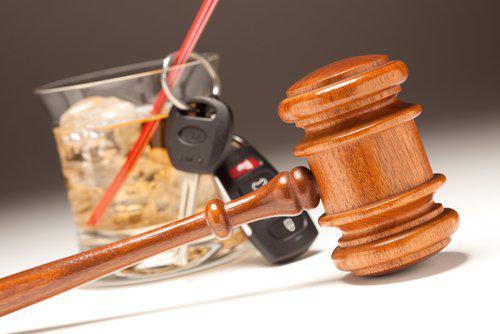 Wisconsin has something of a national reputation for being lenient on people charged with OWIs. In fact, Wisconsin is the only state that still treats a first-time OWI offense as a traffic violation rather than a criminal charge. Yet, that reputation for leniency may be about to change. The Wisconsin state legislature is considering a new bill that would impose a lifetime driving ban on drivers who were convicted of five OWIs. Of course, several other bills designed to increase penalties on people convicted of repeat drunk driving offenses were introduced during the previous legislative session, and they did not pass.
Wisconsin has something of a national reputation for being lenient on people charged with OWIs. In fact, Wisconsin is the only state that still treats a first-time OWI offense as a traffic violation rather than a criminal charge. Yet, that reputation for leniency may be about to change. The Wisconsin state legislature is considering a new bill that would impose a lifetime driving ban on drivers who were convicted of five OWIs. Of course, several other bills designed to increase penalties on people convicted of repeat drunk driving offenses were introduced during the previous legislative session, and they did not pass.
The New Law's Effects
The new law would introduce a lifetime driver's license revocation for people who were convicted of five OWIs over the course of their lives. The idea behind the bill is that driving is a privilege rather than a right, and that people who cannot do it safely should not be allowed on the road. The law itself is based on a similar policy currently in place in New York, where people lose their licenses after three DUIs in 25 years or five over a lifetime.
License Plate Readers: An Invasion of Privacy?
 Police departments in Wisconsin have access to a little-known piece of technology with some surprising implications for privacy. Some squad cars now have an automatic license plate reader (ALPR). The system catalogs every license plate it passes and records the position in a police database. The ALPR system has proven useful in apprehending some criminals, such as a copper theft ring, but it also raises serious privacy concerns since it logs data indiscriminately on both potential offenders and people without any criminal history, outstanding tickets, or outstanding warrants.
Police departments in Wisconsin have access to a little-known piece of technology with some surprising implications for privacy. Some squad cars now have an automatic license plate reader (ALPR). The system catalogs every license plate it passes and records the position in a police database. The ALPR system has proven useful in apprehending some criminals, such as a copper theft ring, but it also raises serious privacy concerns since it logs data indiscriminately on both potential offenders and people without any criminal history, outstanding tickets, or outstanding warrants.
How the System Works
The system works by way of four cameras mounted to the squad car, each of which face different directions. The cameras independently photograph the other cars around the squad car, reading their license plates and storing the images. The images are stored in a database along with tags indicating the location the vehicle was spotted using an on-board GPS.
Drivers' Rights during Traffic Stops
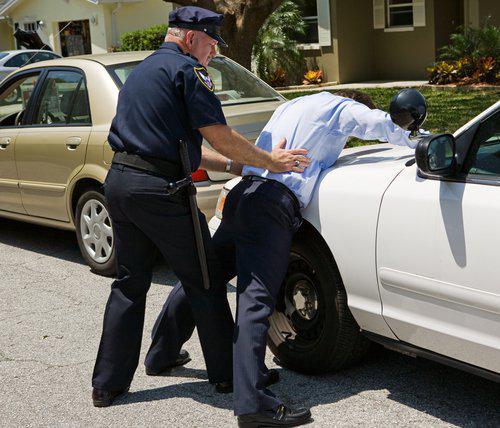 Although many drivers understand that they have certain rights during traffic stops, often these rights are misunderstood or go unexercised. Yet, with over 200,000 traffic stops a year according to a report by the Wisconsin State Patrol, many people stand to benefit from more clearly understanding their rights when interacting with the police. With regard to traffic stops, two of the most important rights that people have are the right to not consent to searches, and the right to remain silent.
Although many drivers understand that they have certain rights during traffic stops, often these rights are misunderstood or go unexercised. Yet, with over 200,000 traffic stops a year according to a report by the Wisconsin State Patrol, many people stand to benefit from more clearly understanding their rights when interacting with the police. With regard to traffic stops, two of the most important rights that people have are the right to not consent to searches, and the right to remain silent.
The Right Not to Consent to Searches
The Fourth Amendment provides people the right to be free from unreasonable searches. This means that police cannot simply stop a person and search their car without good reason. Instead, they need to have “probable cause” to believe that their search would turn up evidence of a crime. This is important because if an officer performs a search without probable cause, then any evidence they find cannot be used at trial.
Understanding the Exclusionary Rule
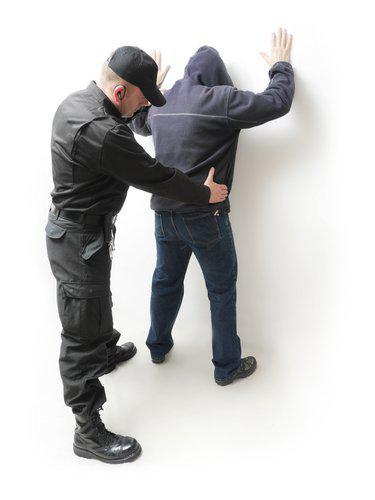 The U.S. Constitution provides a variety of rights to people accused of crimes, such as the right to a jury trial, the right to avoid testifying against oneself, and the right to be safe from cruel and unusual punishment. One of the most important of these rights is the right to be protected from unreasonable searches, which comes from the Fourth Amendment. This right prevents the police from searching a person's home or property without a warrant (with some exceptions).
The U.S. Constitution provides a variety of rights to people accused of crimes, such as the right to a jury trial, the right to avoid testifying against oneself, and the right to be safe from cruel and unusual punishment. One of the most important of these rights is the right to be protected from unreasonable searches, which comes from the Fourth Amendment. This right prevents the police from searching a person's home or property without a warrant (with some exceptions).
This criminal right is unique because of the way the government enforces it. Many constitutional rights are enforced by monetary damages. If a person has their rights violated, then they can sue the government and recover money for the harm they suffered. The protection against unreasonable searches is enforced through something known as the “exclusionary rule.” The exclusionary rule states that any evidence that police uncover as a result of an illegal search may not be used in court. Additionally, any evidence that the police later discover as a result of illegally-obtained evidence is also banned from trial under the colorfully named doctrine of “the fruit of the poison tree.”







